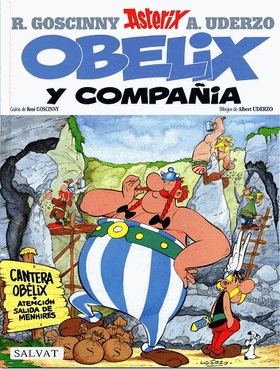
13 Oct Do markets possess moral values?
“Because if, with demand offered and production satisfied, I don’t do enough, then I’ll make the sesterces drop into the prices.”
A quote from Obelix in the adventure “Obelix and Co.” by Goscinny and Uderzo. Asterix is a comic from my childhood that depicts the resistance of a “Gaulish” village during the Roman occupation. In this particular history, the Romans devised a commercial strategy to defeat the Gauls by artificially driving up the demand for menhirs (stones of little practical value), inflating their prices, and creating economic classes within the village. The story ends, as usual, with a banquet in the small village and the Romans “completely beaten.”

Why did I start with a comic from my childhood? In fact, with Obelix’s confusing phrase about supply, demand, and prices. Because I often see the same thing happen with the economy. Before a class or during a meal with friends, everything is joy, everything is laughter, until someone (in a feigned tone of gravity) brings up supply and demand. That someone explains market movements, and everyone (often myself included) just hears something very similar to what Obelix said.
For this reason, I’d like to explain what “demand” is and why, from my perspective, it’s linked to the phrase “the market has no morals.”
When I start a class, I usually ask the following question: “What do you understand by demand?” The usual answers: it’s the purchase price, what people buy, what people want, how much people buy, etc. I then invite participants (and I invite you as well) to the following mental exercise: How much would you be willing to pay right now for a chocolate? Some will answer zero, others might say Bs 10, and some, who love it as much as I do, Bs 50. The truth is each of us has a different willingness to pay for the same chocolate. So, if we order these numbers from highest to lowest… voilà, we have the demand for chocolates. As simple as that: demand measures our willingness to pay for something, and that “something” could be a good or service.
So far, nothing new—and most likely just as boring as Obelix’s statement. Let’s spice it up.
Why is it easier to sell sensationalist news than to raise funds for a nature reserve? Because, among other things, many people are willing to pay for news tied to sensationalism, while very few are willing to pay for protecting the nature reserve. In Obelix’s terms… I mean, in economic terms, the demand for sensationalist news is higher than the demand for a nature reserve.
Thus, we could say that much of the goods and services produced in an economy (though certainly not all) arise because there is a group of people willing to pay for them, in other words, many people want to cover their production costs.
Chocolates are produced because many people are willing to pay for consuming them. Soccer games are played because many people want to pay to see their favorite team. Expensive clothing is manufactured because many people want to pay for it. There’s even a black market for human organs because many… ehhh, as Santi would say, “hold it right there.” That black market is prohibited, many will say. But that doesn’t mean it doesn’t exist, Obelix might argue, because there are people willing to pay for it. In other words, “there’s a market.” That’s why the phrase “the market has no morals” is so widely used.

There are black markets, like the one just mentioned (Human Organs) where it’s very easy to draw the line. But there are others where it’s much harder. If many people are willing to pay for a good or service that others might dislike (wine, diamonds, cocaine), should we prohibit its consumption? Who should do so? A State bureaucrat? A moral police?
I’d like to end this post on a positive note, such as: “If people are willing to pay for a good or service, then their money is welcome, because people know what they want.” However, you can’t imagine how easily manipulated we all are. Do you remember that many years ago, they sold us stones? They called them “Ijchus”.

Don’t forget: when we talk about demand, what’s often behind this concept is people’s morality and what that morality “forces” us to buy—or not to buy.
Sensationalist news vs. protecting the nature reserve.
S. Mauricio Medinaceli Monrroy
La Paz
October 13th, 2022



No Comments